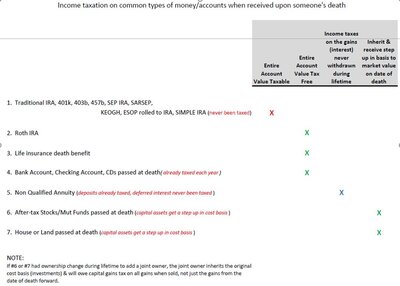- 10,806
110% agree. Hate that commission is treated like a dirty word. A 5% commission one time on an Annuity or mutual fund is made to be a crime, but 1% annually for 20 years is better for consumer.....lol
Annuity comp and MF comp are different imo. Annuity comp does not cause the client to start off in the negative, neither does a wrap fee.
Also, someone paying a wrap fee should be receiving services other than just being put in a mutual fund. (if thats happening or not is a different matter)
Last edited:

